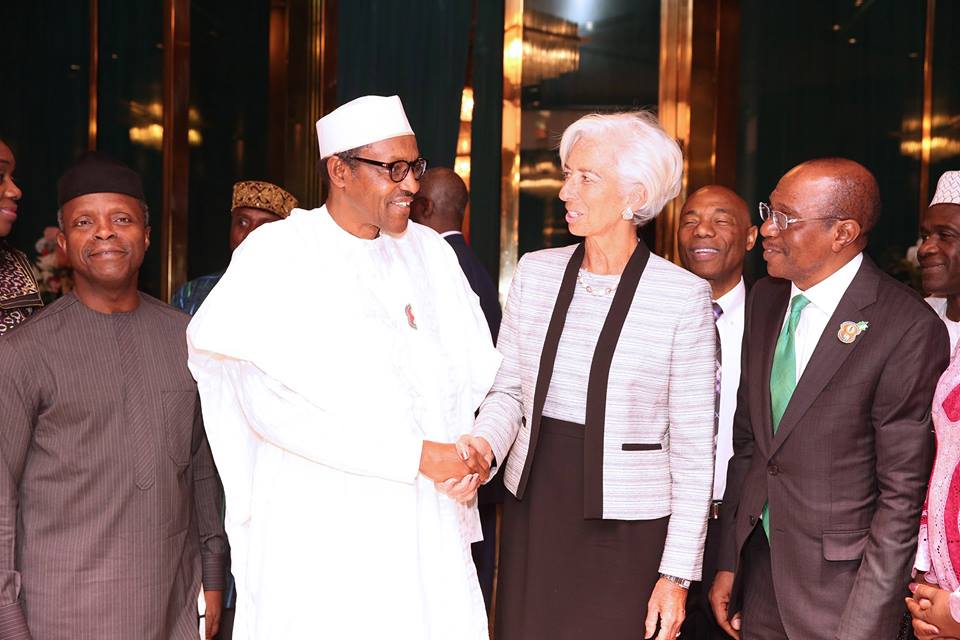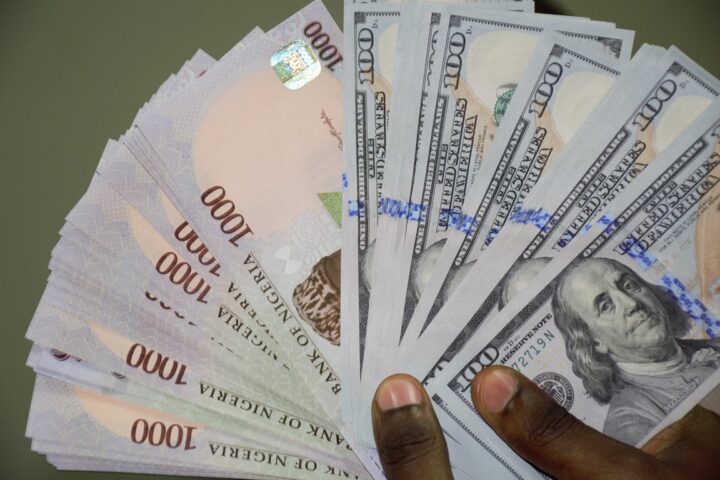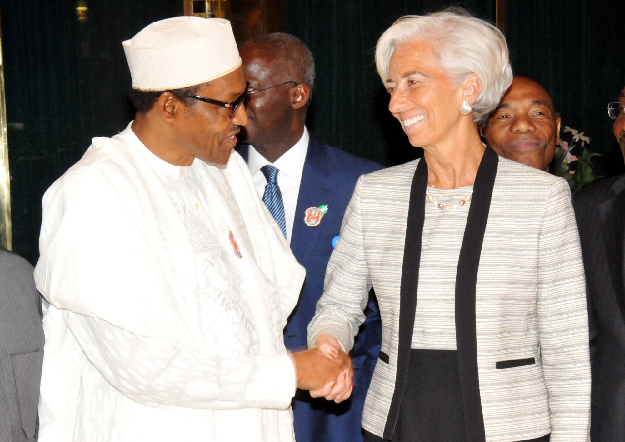The improving sentiment towards the Nigerian economy was dealt a heavy blow in March following reports of the International Monetary Fund’s (IMF) warning of a potential economic collapse if the nation failed to move ahead with reforms.
Although at the start of the year the economic outlook was elevated on repeated occasion with even the World Bank predicting an encouraging growth for 2017, the pending report from the IMF which may be seen as a warning could create some headwinds as the nation attempt to secure international loans worth $1.4 billion. While global markets have acknowledged that the largest economy in Africa is in the process of a key fundamental transformation that may exceed all expectations, there still remains a threat of internal and external risks creating obstacles.
Some optimism still exits over the economic growth recovery plan for 2017-2020 which displayed an encouraging outlook for the nation. The four-year plan was built around achieving a healthy economic growth and sustainable development while the nation embarked on its quest to breaking away from oil reliance. With there being a very strong focus on the nation enhancing both public and private sector efficiency while also boosting overall productivity, the growth forecast of 7% by 2020 could become a reality if the protocol is followed. Nigeria must do all it can to achieve a stable macroeconomic environment such as invest heavily in agriculture and bolster infrastructure investments to generate sustainable economic growth in the longer term.
Focusing on Nigeria’s macro fundamentals, economic data this quarter has been mixed with inflation cooling down for the first time in 15 months in February. While inflation has started to somewhat stabilize, the high unemployment remains a cause for concern which may become another stumbling block to stable economic growth. The mixed economic data and lingering uncertainty still enshrouding Nigeria have encouraged the Central Bank of Nigeria to maintain a passive stance in its recent policy meeting. Although the sentiment towards the nation continues to display some early signs of improvement, long-term fears over decelerating economic growth still weigh heavily on sentiment. While the Central Bank of Nigeria has intervened to somewhat quell the foreign exchange scarcity dilemma, the multiple exchanges is a damaging policy that even the IMF has urged the government to rectify.
Advertisement
Speaking of foreign exchange policies, the Naira currently trades around 390 on the parallel exchange after the Central Bank of Nigeria injected a mammoth $1.138 billion in the forex markets to meet bids for forwards. While the repeated injections of Dollars in the foreign exchange may buoy the Naira, questions should be raised over the sustainability of this method. With the multiple exchanges still a major cause for concern that needs to be seriously dealt with, expectations remain heightened over the CBN taking further steps to fully bridge the gap in a sustainable way, ultimately creating one equilibrium currency exchange. Although the Naira may be poised to appreciate further in the short term as the CBN continues to pump Dollars into the markets, the possibility of a currency devaluation in the future could expose the Naira to downside shocks.
Outside of Nigeria, the cautious attitude the Federal Reserve has adopted coupled with the renewed Trump jitters has exposed the Greenback to major downside risks. A vulnerable Dollar may pose some benefits to emerging markets with Nigeria on the list. With the growing concerns over Trump’s economic policies punishing the Dollar, emerging market currencies may receive a boost as concerns ease of capital outflows. With Trump already facing headwinds in the early stages of his presidency in enacting his policies, the threat of the protectionism becoming a reality may subside consequently reducing some pressures on emerging markets.
Looking at oil, prices were exposed to downside risks this quarter with WTI Crude tumbling towards $47 after optimism diminished over the effectiveness of OPEC’s supply cut agreement. The consistent buildup seen in U.S Crude stockpiles swiftly revived the oversupply fears while concerns over some OPEC members not fully respecting compliance cuts weighed heavily on sentiment. Oil prices could be instore for further punishment moving forward with the bullish effect of last year’s unexpected production cut wearing off amid the global glut anxieties. A drop in oil prices may enforce further downside pressures on Nigeria which currently remains reliant on oil exports for a chunk of its government’s revenue.
Advertisement
As we enter the second quarter of the trading year, investors will be paying very close attention to economic data and if the nation is able to secure the $1.4 billion worth of international loans. The blueprints to a recovery are already in place and now actions must be taken to propel the nation away from recessionary levels. With the IMF warning Nigeria that its economy needs urgent reforms with the government changing its exchange policy, the CBN may be prompted to intervene in an effort to create some stability while improving the chances of securing the critical loan needed. On the foreign exchange side, although the combination of repeated interventions from the CBN and Dollar weakness may elevate the naira, the long-term trajectory still tilts to the downside, especially when factoring a potential devaluation.
Add a comment







